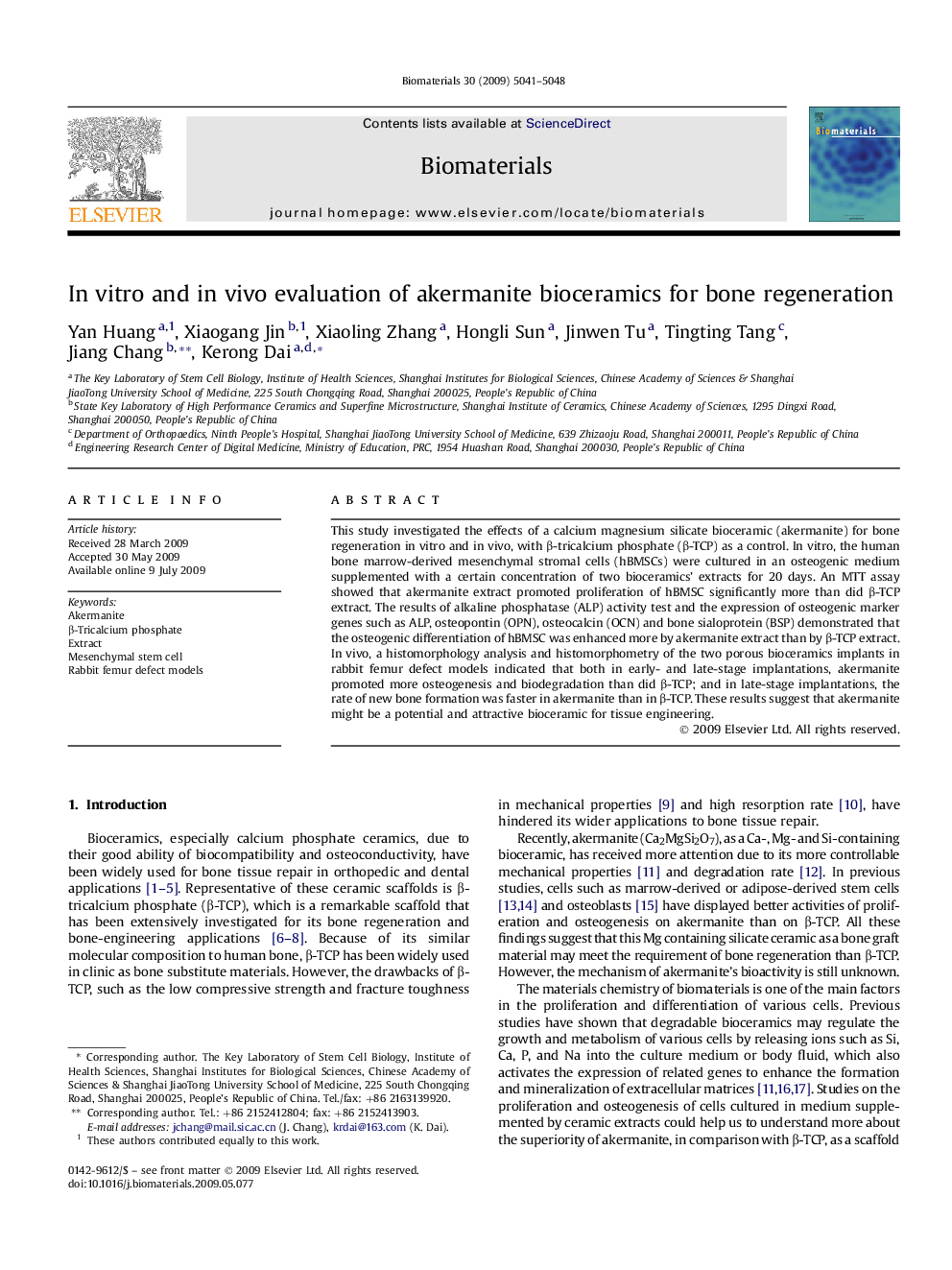| Article ID | Journal | Published Year | Pages | File Type |
|---|---|---|---|---|
| 9038 | Biomaterials | 2009 | 8 Pages |
This study investigated the effects of a calcium magnesium silicate bioceramic (akermanite) for bone regeneration in vitro and in vivo, with β-tricalcium phosphate (β-TCP) as a control. In vitro, the human bone marrow-derived mesenchymal stromal cells (hBMSCs) were cultured in an osteogenic medium supplemented with a certain concentration of two bioceramics' extracts for 20 days. An MTT assay showed that akermanite extract promoted proliferation of hBMSC significantly more than did β-TCP extract. The results of alkaline phosphatase (ALP) activity test and the expression of osteogenic marker genes such as ALP, osteopontin (OPN), osteocalcin (OCN) and bone sialoprotein (BSP) demonstrated that the osteogenic differentiation of hBMSC was enhanced more by akermanite extract than by β-TCP extract. In vivo, a histomorphology analysis and histomorphometry of the two porous bioceramics implants in rabbit femur defect models indicated that both in early- and late-stage implantations, akermanite promoted more osteogenesis and biodegradation than did β-TCP; and in late-stage implantations, the rate of new bone formation was faster in akermanite than in β-TCP. These results suggest that akermanite might be a potential and attractive bioceramic for tissue engineering.
